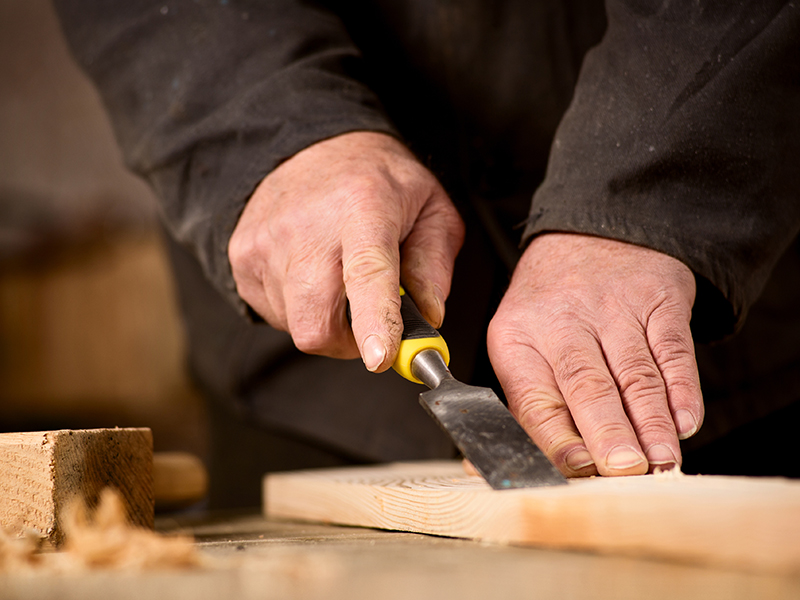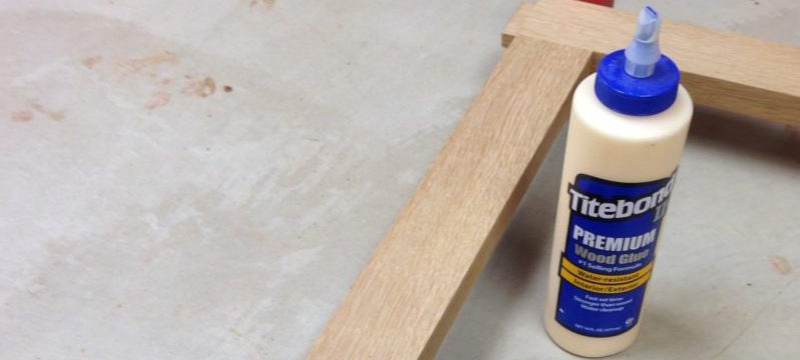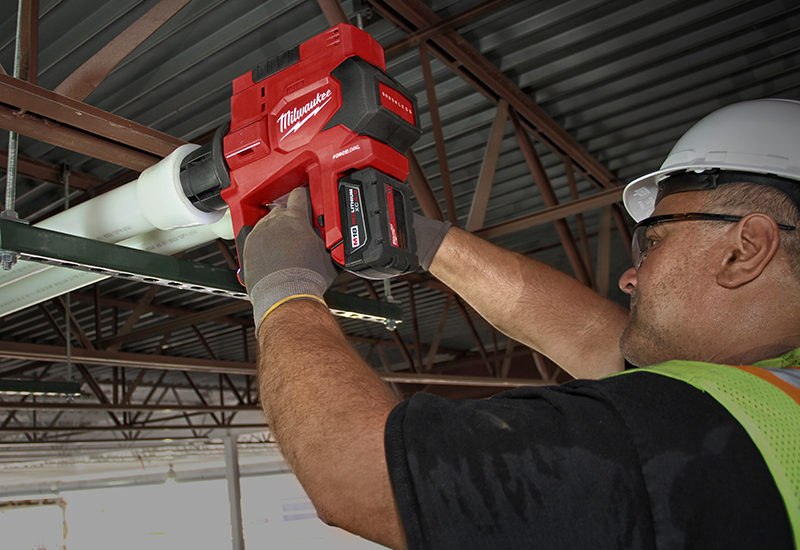Starter Tools For Woodworkers
Considering the number of power tools and hand tools available today, selecting a set of starter woodworking tools can be a challenging task. When equipping your workshop, consider the projects you’ll be taking on, your personal skill level and your available space. The best starter tool set will help you tackle the cutting, shaping and finishing jobs your projects demand and remain useful as your woodworking skills grow. You should also look for tools that handle more than one task, so you can complete a variety of woodworking projects without buying dozens of specialty tools. Read on to find out more about three must-have starter tools every woodworking enthusiast should consider when planning their workshop.
Rips and Crosscuts: The Table Saw
 One of the most common woodworking tasks is cutting materials to shape, and the table saw, the first of three must-have starter tools, handles this job quickly and easily. A table saw consists of an electric circular saw mounted beneath a flat surface, the table, with the blade pointing upward. A vertical fence guides material cut past the blade, ensuring a straight cut, and you can fit them with different blades to carry out a variety of cutting or shaping tasks. They’ll rip or crosscut solid stock, plywood, composite materials or even plastic depending on the blade used. Table saws are much faster than handsaws and usually more accurate than handheld electric saws, making them an ideal choice for cutting furniture panels to size or ripping trim to the proper width when remodeling. In many cases, your table saw can replace a miter box and router, since you can use it to make dado, miter and rabbet joints or cut beveled edges. There are several types of table saws available:
One of the most common woodworking tasks is cutting materials to shape, and the table saw, the first of three must-have starter tools, handles this job quickly and easily. A table saw consists of an electric circular saw mounted beneath a flat surface, the table, with the blade pointing upward. A vertical fence guides material cut past the blade, ensuring a straight cut, and you can fit them with different blades to carry out a variety of cutting or shaping tasks. They’ll rip or crosscut solid stock, plywood, composite materials or even plastic depending on the blade used. Table saws are much faster than handsaws and usually more accurate than handheld electric saws, making them an ideal choice for cutting furniture panels to size or ripping trim to the proper width when remodeling. In many cases, your table saw can replace a miter box and router, since you can use it to make dado, miter and rabbet joints or cut beveled edges. There are several types of table saws available:
- Benchtop table saws are compact tools, and an excellent choice if your shop has limited space or you work with smaller and lighter materials.
- Contractor table saws are larger and heavier than benchtop saws, and they often have wheeled bases that let you move them around your worksite.
- Cabinet table saws have a substantial base that provides a sturdy work surface. They often have more powerful motors and provide more stability than other table saws.
If you have space in your shop, a cabinet table saw is an excellent woodworking starter tool investment.
Hand Carving with a Chisel Set
 Whether you’re cutting a mortise for a hinge, cleaning up dado or dovetail joints or shaping a groove or edge by hand, your tool of choice is probably a hand chisel. These flexible woodworking starter tools come in a variety of sizes and designs, but the most popular type is the bevel edge or bench chisel. Their blades come in many widths and have beveled sides so that you can maneuver them inside tight joints or narrow cuts. Use them in place of a wood file to clean up interior corners in joints, smooth rough spots on sawed edges or to handle light decorative carving tasks, such as creating distressed surfaces or rounded edges.
Whether you’re cutting a mortise for a hinge, cleaning up dado or dovetail joints or shaping a groove or edge by hand, your tool of choice is probably a hand chisel. These flexible woodworking starter tools come in a variety of sizes and designs, but the most popular type is the bevel edge or bench chisel. Their blades come in many widths and have beveled sides so that you can maneuver them inside tight joints or narrow cuts. Use them in place of a wood file to clean up interior corners in joints, smooth rough spots on sawed edges or to handle light decorative carving tasks, such as creating distressed surfaces or rounded edges.
Another common chisel, the mortise chisel, has a strong, unbeveled blade and a sturdy handle that can withstand mallet blows. As the name implies, they’re a specialized tool designed to cut mortises for mortise and tenon joints, making them an indispensable addition to your shop if you plan on doing complex joinery. Their strong blades make short work of deep cuts in the hardest woods, so they can also be used to make cuts in places where a saw or router won’t fit. A set of bench chisels, supplemented with one or two mortise chisels if you plan on building furniture or cabinets, is the second of three must-have starter tools for your workshop.
The Perfect Finish: An Orbital Sander
 One of the most time-consuming parts of any woodworking project is sanding, and most woodworking enthusiasts would agree it’s also one of the least interesting. Orbital sanders — also known as disc sanders — speed up this process considerably, making them an ideal woodworking starter tool. Most handheld sanders are random orbital sanders. The sanding head on these devices moves in an elliptical pattern as it spins, eliminating swirl marks from sanded surfaces. You’ll find dozens of electric- and battery-powered orbital sanders on the market today, and they have features such as ergonomic grips, dust collection systems and variable speed controls make them comfortable and easy to use.
One of the most time-consuming parts of any woodworking project is sanding, and most woodworking enthusiasts would agree it’s also one of the least interesting. Orbital sanders — also known as disc sanders — speed up this process considerably, making them an ideal woodworking starter tool. Most handheld sanders are random orbital sanders. The sanding head on these devices moves in an elliptical pattern as it spins, eliminating swirl marks from sanded surfaces. You’ll find dozens of electric- and battery-powered orbital sanders on the market today, and they have features such as ergonomic grips, dust collection systems and variable speed controls make them comfortable and easy to use.
In addition to speeding up the surface finishing process, orbital sanders fitted with coarse abrasives can take the place of a router or file when you need to round off edges or shape and smooth curved surfaces. They can even be used to reduce the thickness of small panels or remove old finishes from recycled materials. The ability to finish wood surfaces, shape curves and remove paint or varnish makes orbital sanders part of the best starter tool set for any workshop.
A table saw, a set of chisels and an orbital sander can take care of many of the cutting, shaping, joining and finishing tasks you’ll encounter as you explore the world of woodworking. Adding these three must-have starter tools to your workshop can simplify almost any project. They’ll also help you achieve better-looking results and speed up tedious tasks such as sanding, and they’ll serve you well as your skills improve. Add these tools to your collection and see how they expand your woodworking capabilities.





One Comment
Tisha
December 23, 2016 at 1:04 amMore posts of this quality.